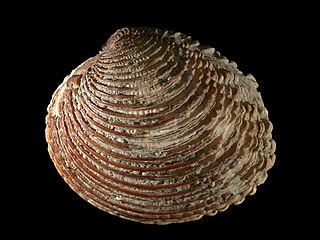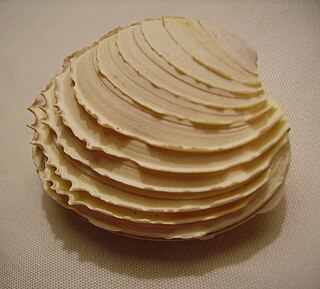
The Old Turkic script was the alphabet used by the Göktürks and other early Turkic khanates from the 8th to 10th centuries to record the Old Turkic language.

During the early stages of the Iraq War, United States Army and Central Intelligence Agency personnel committed a series of human rights violations against detainees in the Abu Ghraib prison in Iraq, including physical and sexual abuse, torture, rape, sodomy, and murder. The abuses came to public attention with the publication of photographs of the abuse by CBS News in April 2004. The incidents received widespread condemnation both within the United States and abroad.

The Veneridae or venerids, common name: venus clams, are a very large family of minute to large, saltwater clams, marine bivalve molluscs. Over 500 living species of venerid bivalves are known, most of which are edible, and many of which are exploited as food sources.

Bassina yatei is a bivalve mollusc of the family Veneridae.
Israel Heymann Jonas (1795-1851) was a German malacologist. He studied medicine at the Christian-Albrechts-Universität in Kiel, Prussia.




